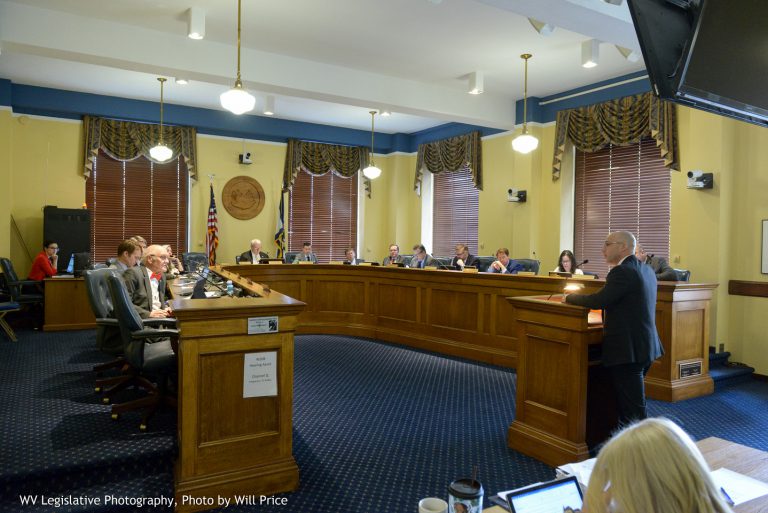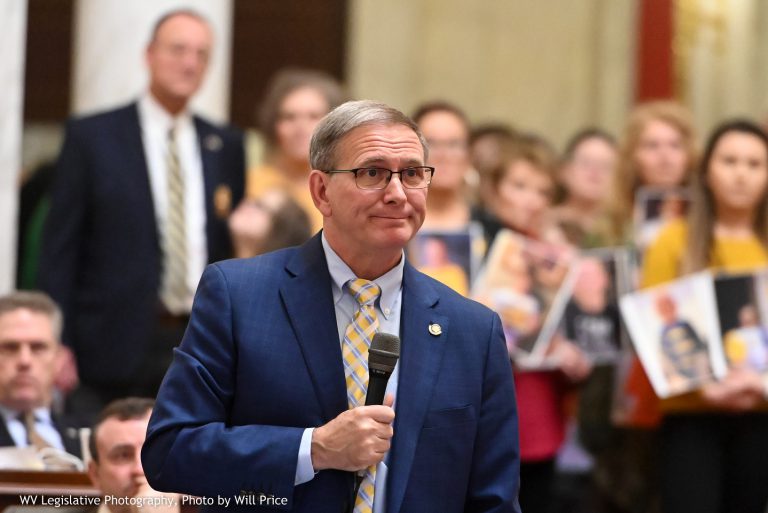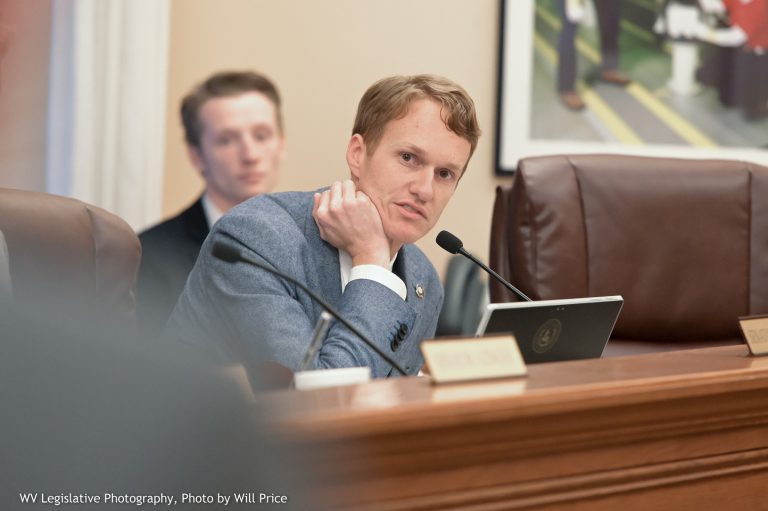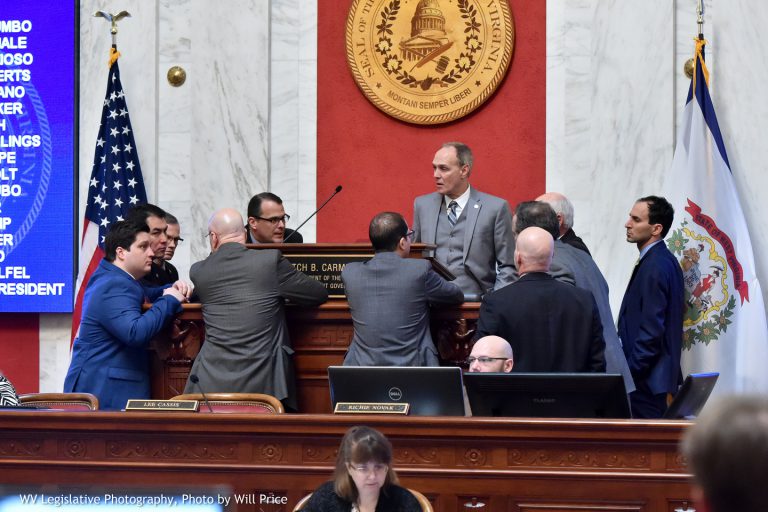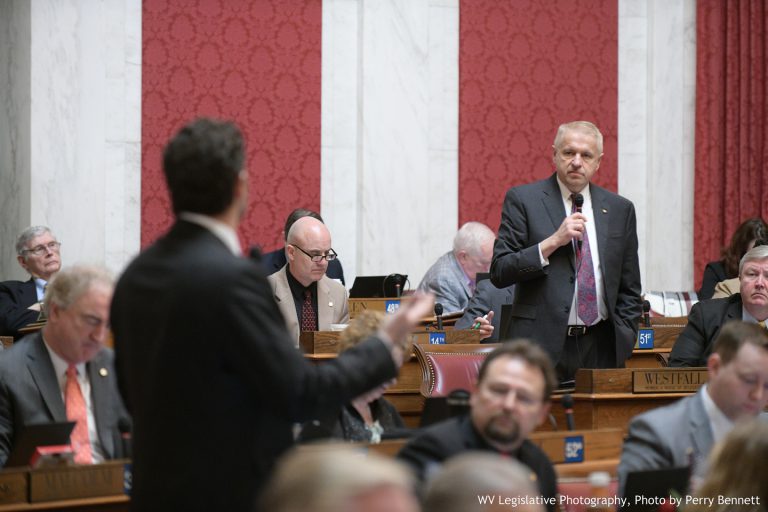The House of Delegates met at 9 a.m. on Thursday, March 7 to consider several pieces of legislation on third reading. The body passed 33 bills. Among noteworthy bills passed were Senate Bill 4 and Senate Bill 318.
The House of Delegates had a consideration of and passed Senate Bill 4, a bill to establish municipal home rule as permanent statute in the state of West Virginia. The municipal home rule program is currently statute in many municipalities across the state, allowing them to pass ordinances and establish levies and taxes according to their individual needs. The passage of Senate Bill 4 would prevent the program from succumbing to its sunset clause in July of 2019.
The House Government Organization committee proposed a primary amendment to the version of Senate Bill 4 that was passed by the Senate. The strike and insert amendment would make several substantial changes to the originally passed bill.
The strike and insert amendment removes the West Virginia Workplace Freedom Act and Labor-Management Relations Act provisions from the list of laws which municipalities may not contradict to reflect the will of this committee. It originally added referendum language to Senate Bill 4 that would subject rules set by municipalities to referendum votes of 30% of the voting population.
Delegate Steve Westfall, R-Jackson, and several other delegates proposed a secondary amendment that would strike the referendum language from the strike-and-insert amendment.
Delegate Geoff Foster, R-Putnam, spoke against the secondary amendment, arguing that the removal of the referendum language would “remove the right of the people to have a say.”
Delegate Shawn Fluharty, D-Ohio, spoke in defense of the secondary amendment, arguing that a referendum would freeze any action that a municipality wanted to take as far as levying necessary taxes.
The secondary amendment passed in a 56-42 after a lengthy discussion.
A secondary amendment proposed by Delegate Chris Phillips, R-Barbour, was also passed by the House of Delegates. The amendment would prevent a municipality from passing any ordinance concerning the possession of firearms.
A similar secondary amendment was proposed by Delegate Eric Nelson, R-Kanawha, regarding architectural engineering. This amendment to Senate Bill 4 was also adopted.
The House’s version of Senate Bill 4 was passed in a vote of 87-11.
Another substantial bill that was passed on this day was Senate Bill 318, which would transfer West Virginia’s Medicaid Fraud Control Unit from the Office of the Inspector General to the Attorney General’s Office.
Senate Bill 318 has stark similarities to House Bill 2867, which aimed to do the same thing. This bill was defeated in the House Judiciary Committee several weeks ago.
Members were concerned about the movement of an arguably effective office to a more political office. Delegate Mike Pushkin, D-Kanawha, was one of the members who spoke in opposition of the bill’s passage.
“We would be putting this fraud unit in a political, high profile office. It’s going to sensationalize the whole process. We’re going to be seeing a lot more visibility and a lot more press conferences after investigations if this paces.”
Other Delegates spoke in favor of the bill’s passage, arguing that Medicaid investigations should not be carried out under the purview of a Department of Health and Human Resources office.
“This just avoids a conflict of interest,” Delegate Tom Bibby, R-Berkley, said.
Senate Bill 318 passed in a close vote of 58-42.
Other noteworthy bills on third reading that were passed out of the House of Delegates included the passage of Senate Bill 238.
Senate Bill 238, which was passed unanimously by the House of Delegates, would increase the fines and period of license suspension for passing a stopped school bus as well as provide for the installation of forward-facing and rear-facing cameras on all school buses.
Senate Bill 529 passed after a debate regarding the bill’s classification as a “booze bill”. The bill would clarify provisions in the Non-Intoxicating Beer Act. Most of the provisions regard the methods of licensure and ability of the Alcoholic Beverage Commission to regulate stores selling alcohol. One change would increase the ABV of non-intoxicating beers from 12 percent to 15 percent.
“This is yet again, another one of those booze bills that we’ve been passing all session,” Delegate Tom Fast, R-Fayette said. “The increase of access to alcohol does not make our state a better place.”
Despite the concerns from several members, Senate Bill 529 passed.
Senate Bill 658 was passed in an 85-13 vote. This bill would allow individuals in the state of West Virginia with a felony of financial matters to not be restricted from licensing a vehicle.
All bills on third reading were passed out of the House of Delegates. All bills can be accessed via the Calendar.
The House is in Recess until 5:00 p.m. today, Wednesday, March 7. The House will reconvene to consider bills on second reading and to receive committee reports and messages from the Senate.
Committees Meeting After Floor Session:
-The House Judiciary Committee will meet at 3:30 p .m. in 418-M for consideration of resolutions.



